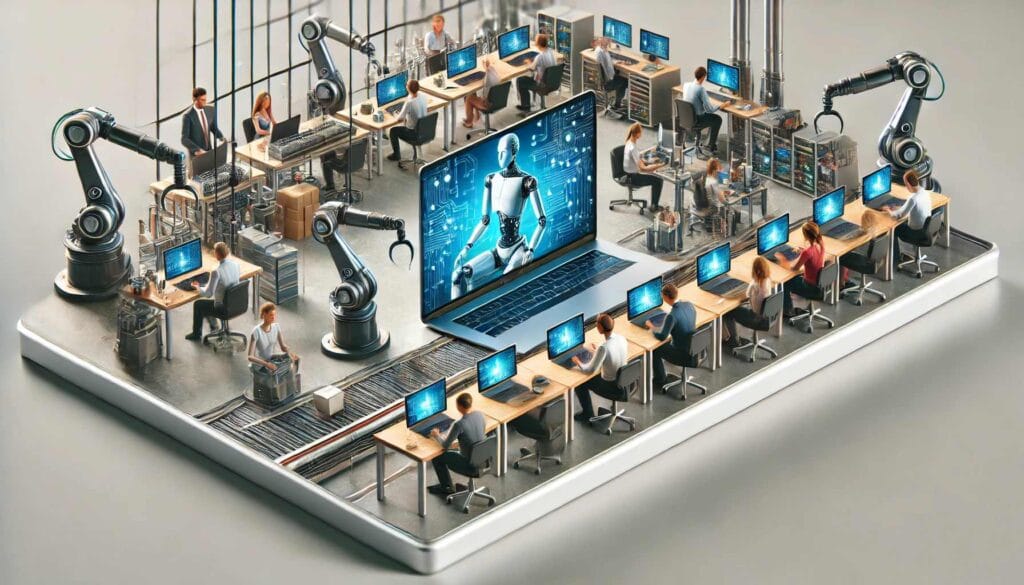The Impact of AI on Jobs: A Double-Edged Sword

In recent years, artificial intelligence (AI) has rapidly transformed how we live and work. While AI has undoubtedly increased productivity and efficiency in many industries, it has also raised concerns about job security and the displacement of workers. This article explores how AI is reshaping the job market and what it means for the future of work.
Automation and Job Losses
One of the most significant impacts of AI is automation. Machines and algorithms can now perform tasks that were once the sole domain of humans. Manufacturing, data entry, customer service, and even some aspects of journalism have been revolutionized by AI-powered systems. As a result, many jobs are becoming obsolete, leading to widespread fears of unemployment.
For instance, in manufacturing, robots have replaced assembly line workers, significantly reducing the need for human labor. Self-driving technology is threatening jobs in transportation, such as truck drivers and delivery personnel. Even in white-collar professions, AI algorithms are performing tasks like financial analysis and legal research with greater speed and accuracy.
New Job Opportunities
However, it’s not all doom and gloom. AI has also created new opportunities in areas like AI development, machine learning, and data analysis. The tech industry is booming, and there is a growing demand for professionals who can design, develop, and maintain AI systems. Additionally, fields like AI ethics, cybersecurity, and digital content creation have seen a rise in job openings.
Moreover, AI can augment human abilities, creating hybrid roles that combine human expertise with machine efficiency. For example, doctors can now use AI tools for more accurate diagnoses, while teachers can leverage AI-driven platforms to personalize learning experiences for students.
The Skills Gap
The rapid adoption of AI has also highlighted a significant skills gap in the workforce. Many traditional roles are being replaced by AI, but workers lack the necessary training to transition into new, tech-focused careers. This gap is a major challenge for governments and educational institutions, who must now focus on reskilling and upskilling initiatives to prepare workers for the AI-driven economy.
The Future of Work
As AI continues to evolve, the future of work will be shaped by our ability to adapt. Some jobs will disappear, but new ones will emerge, and those who can learn and adapt will thrive. Governments, businesses, and individuals must collaborate to ensure that the transition is as smooth and inclusive as possible.
The key lies in education and continuous learning. By embracing lifelong learning and acquiring skills in AI, data analysis, and other emerging technologies, workers can stay relevant and find new opportunities in an AI-dominated world.
Conclusion
AI is transforming the job market in profound ways. While it poses challenges for job security, it also presents opportunities for innovation and growth. The real question is not whether AI will change the job market, but how we will adapt to this change. As we navigate this AI-driven era, it’s crucial to focus on building a future where technology enhances human potential, rather than replacing it.
Source : Medium.com




